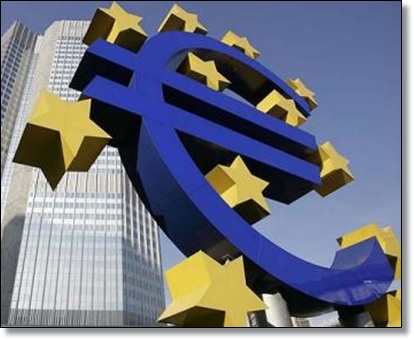European Year for Development

 |
It is also timely for another reason: 2015 is the deadline for meeting the United Nations Millennium Development Goals. At the end of this year we will replace them with a new global agenda, the so-called “post-2015 development agenda.” In order to do so, we will have the 3rd Financing for Development Conference in July in Addis Ababa, and at the United Nations post-2015 Summit in September in New York. And finally, 2015 is also the year where we are working towards a new Global Climate agreement in Paris.
The United Nations Millennium Development Goals have guided our development policy for 15 years now. Remarkable results have been achieved. The proportion of poor people has been reduced by more than half. 9 out of 10 children in developing countries start school – and this in equal number for both boys and girls.
With the European Union and its Member States as the world’s most important donor, we can take pride in these numbers. Europe has helped make a difference in the life of millions. And we will not relent our efforts: in a few weeks my Commission will call for us to collectively renew our support and commitment to the world's poorest.
Because there is still a lot to do to ensure that basic human rights are respected:
While the proportion of undernourished people globally decreased from 23.2 per cent in 1990-1992 to 14.9 per cent in 2010-2012, this still leaves 870 million people — one in eight worldwide! — going hungry.
While the under-five mortality rate has dropped by 47 per cent since 1990, in sub-Saharan Africa, one in ten children dies before age five, more than 15 times the average for developed regions.
The world we live in is increasingly interdependent. We witness this every day. The challenges we face, be that climate change, migration, radicalism or viruses like Ebola, do not know any borders. Our response needs to be united. Our policy must adapt to better face these challenges.
In this context, the post-2015 agenda is, quite simply, an opportunity we cannot afford missing. Eradicating poverty and achieving sustainable development are two of the most pressing challenges facing the world today. It is about allowing people to live a decent life whilst respecting our planet.
As UN Secretary General Ban Ki-moon has put it, the post-2015 agenda “offers a unique opportunity for global leaders and people to end poverty, transform the world to better meet human needs and the necessities of economic transformation, while protecting our environment, ensuring peace and realizing human right.”This is no small order. This will not happen by itself.
At its core, the Sustainable Development Goals and targets will apply to all countries, taking their national circumstances into account. Universality is fundamental: we should recognise that all countries have common challenges and opportunities for a shared future, and that we all need to make concrete commitments – both global and domestic – to make change happen.
This means that the EU will also need to rise to the challenge. This is not a new departure for us – we are already committed to sustainable development at home and abroad, and to global solidarity. But we will need to do more, and better. And crucially, we will also need to get others to do the same, and contribute their fair share.
My Commission will work closely with other EU institutions, our Member States, and of course our international partners to make sure we deliver. I would like to call on all EU citizens to accompany us in these efforts.
The European Year for Development will be a year in which we will see actions all over Europe, in all Member States, among civil society and from all European institutions. The motto of this European Year we owe to the European Parliament embodies this well: “Our world, our dignity, our future.” Each individual has a role to play for a more sustainable and peaceful world. We want to tell stories from around the world to show that wherever we are from and wherever we want to go, our aspirations are the same: a stable and peaceful world, education for our children, jobs for young people, a decent life on a planet of which we need to take better care.
Development policy and international cooperation are fundamental European policies which affect us all. With the active help of all, we can change the way we speak about these global. In short, we should all bring this year to life, we have some fantastic stories to tell about “our world, our dignity and our future” – let’s tell them together.
By Jean-Claude Juncker
President of the European Commission.
